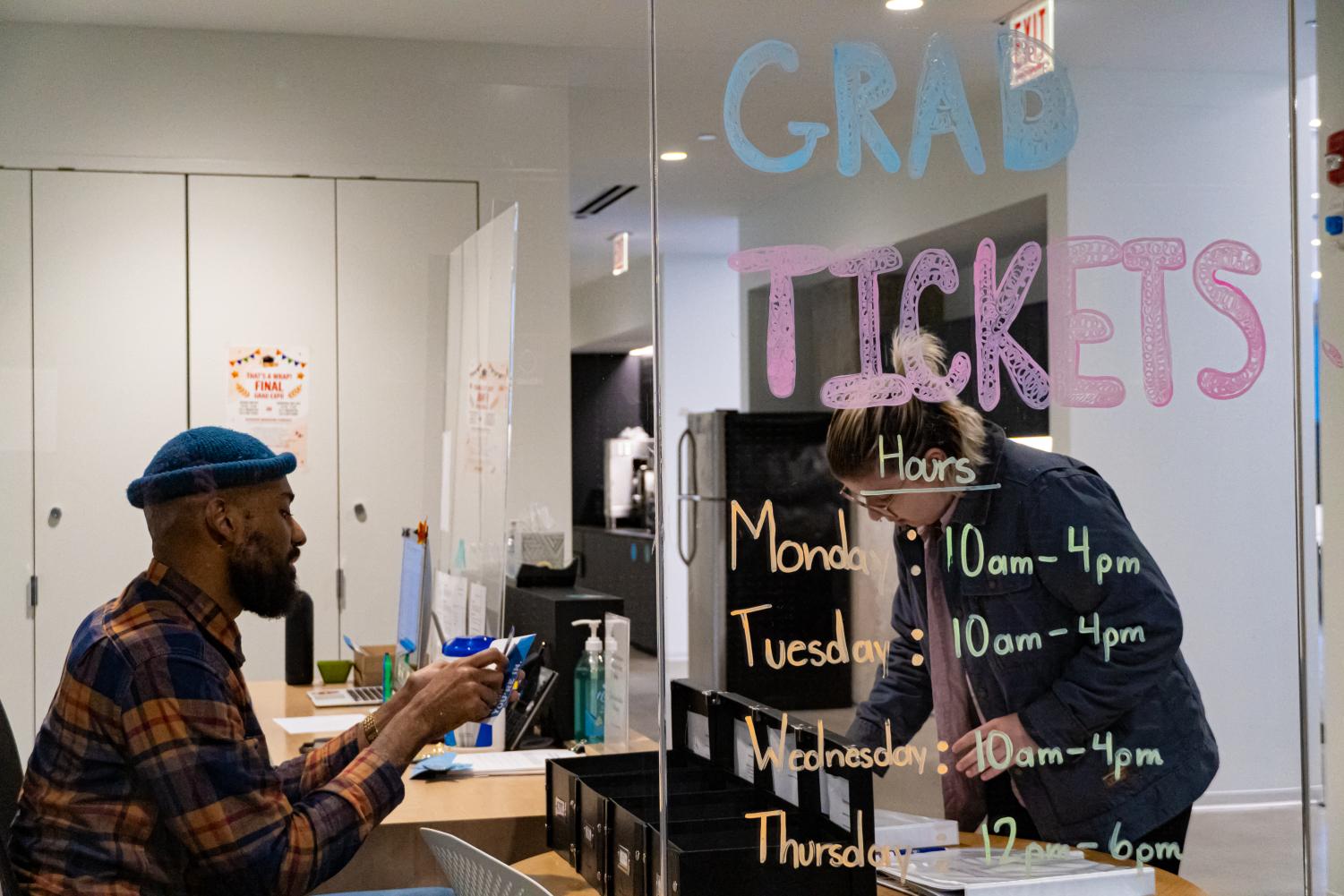Graduating students share how COVID impacted them during their time in college
May 3, 2023

DEI ISSUE
Students who started college four years ago were affected by the COVID-19 pandemic the entire time they were at Columbia, with a shift to remote learning their first year, followed by masking requirements and restrictions on interacting in person for much of the next year.
Although masking requirements at the college have since lifted and restrictions remain in only a few settings and will be fully lifted by graduation weekend, the impact of COVID marked the experience of nearly every student who was on a four-year path to graduation.
The Chronicle talked to students who are graduating in May about the various ways COVID influenced their time on campus.
“It definitely was very different,” said Noey Budde, a senior music student. “I thought I’d be going to more parties, to more social events and I sadly ended up being kind of more of a shut-in after COVID.”
Marina Ventella, a fourth year fashion studies student, made close friends in an online fashion studies class.
“You wouldn’t expect to get your friends over Zoom that first year and then continuing your friendships in person, but I was lucky enough to have that happen,” Ventella said.
Mei Ling Marzonie, a fourth year film and television student, came to Columbia to study producing. She changed her major to photography during hybrid learning because the Cinema and Television Arts Department restricted the number of people on set, which limited how many students could take production classes.
“For a liberal arts college, where the focus is collaboration in the arts, and especially for my field, from television, it was really hard and very detrimental to my education learning process,” Marzonie said.
She changed her major back to production because she realized that’s what she really wanted to do.
“I found myself dug in where the work was, that work with cameras. I’m eventually back to I want to be, which is being a producer,” Marzonie said.
Jennifer Halperin, an internship and career advisor, said many students benefited from all the transitions during the past few years.
“The skills that this group of graduates has been forced to pick up, such as learning how to navigate an entirely new way of going to school and a new way of working through the pandemic makes you more resilient and employable over the long term,” Halperin said.
The Career Center services will be available for grads for an entire year after graduation. Students can change their Handshake email to their personal one to keep their account and be in the loop of career expo events and make appointments.
Although the pandemic may have impacted students’ social skills, it is normal for anyone to feel awkward during the transition between college and work environment, Halperin said.
“I would really hate for there to be any self-fulfilling prophecy of ‘oh this generation can’t communicate well or can’t socialize well because of this,’” Halperin said. “Then, students feel like ‘Well, I guess that’s just how I am. I guess I just don’t communicate clearly or I don’t socialize well with professionals.’”
Budde said in some ways, not having to socialize benefited them.
“Because of my social anxiety I think it really did help me hone in my thinking,” Budde said. “When I came back to Chicago, I was so happy to see all my friends. It was so nice to see that those remote collaborations became onsite collaboration, and I think that it made them stronger.
After facing isolation for the first few years of college, Courtney Williams, fourth-year fashion studies major decided to take more advantage of the Student Center to hang out between classes.
Williams is excited to graduate but also nervous about the future. “I don’t have a job yet and it’s the first time in my life that I haven’t really been in school so it’s like, what am I gonna do?” Williams said.






